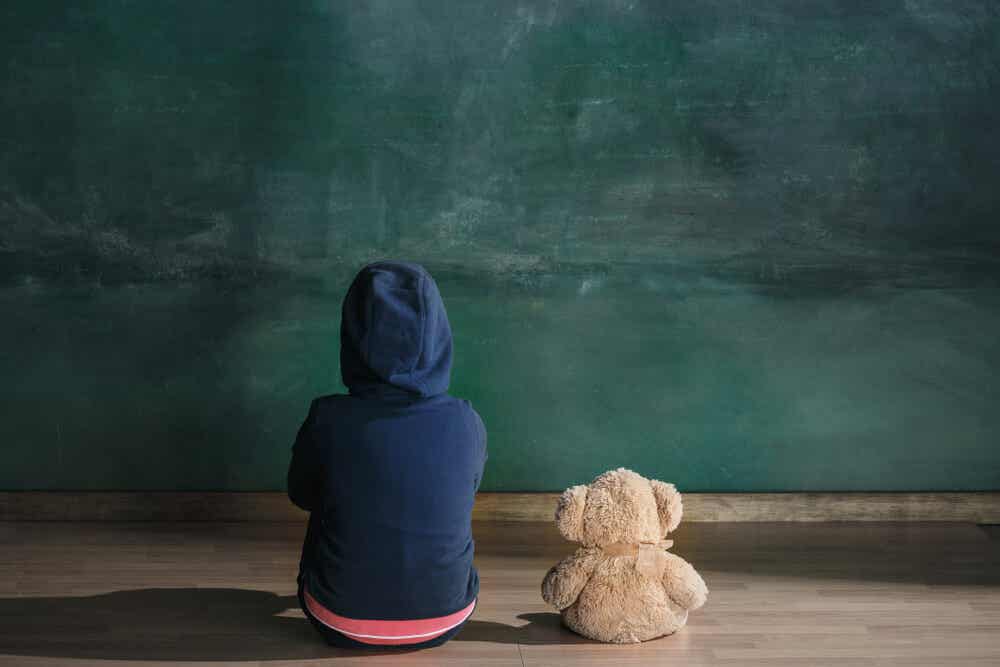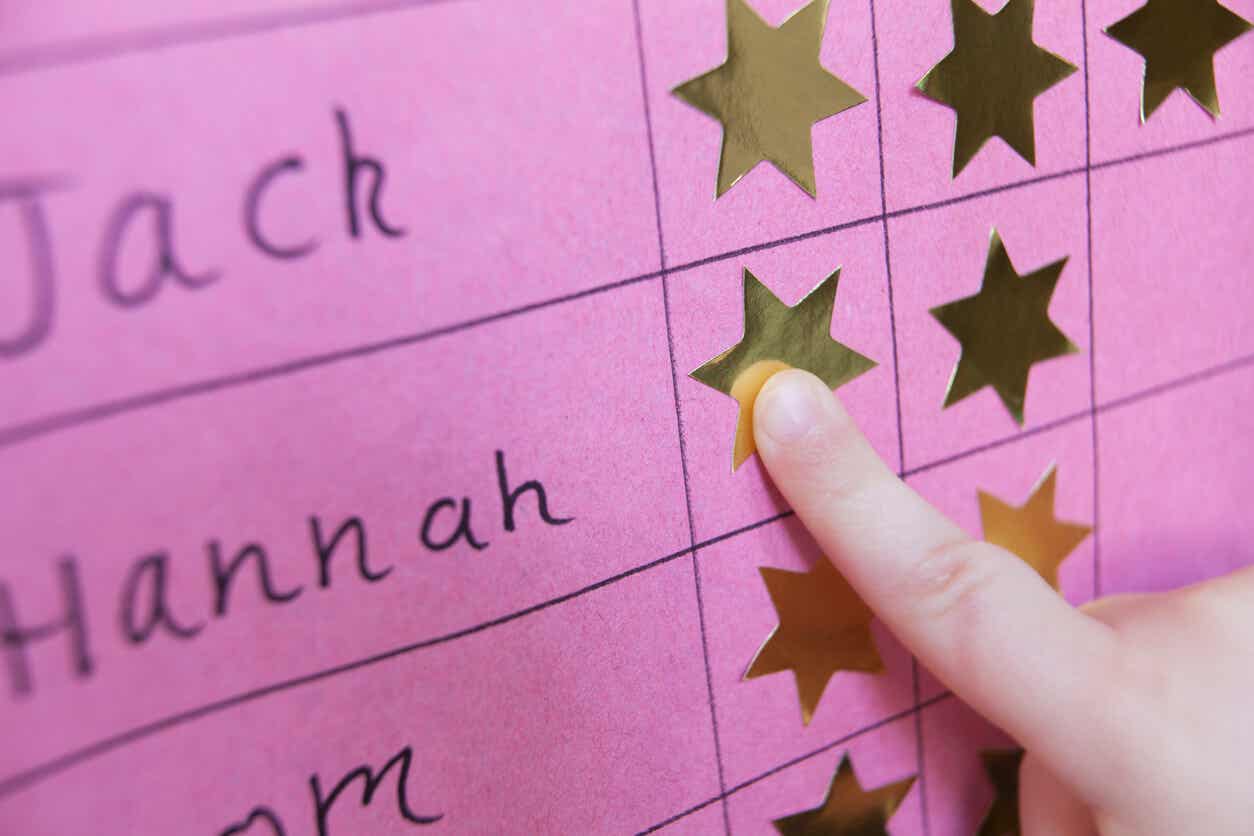Positive Discipline for Children with Special Educational Needs


Written and verified by the psychopedagogue María José Roldán
The moment you were told that your son or daughter would have special educational needs, you somehow knew that parenting would be a constant challenge. And you weren’t wrong. You may think it’s best to focus on permissive discipline. As your child has certain limitations, perhaps you feel you need to be a little more tolerant with them. But no, that’s not the case. All children, with or without special educational needs, need a proper upbringing. With that in mind, we want to talk to you about positive discipline for children with special educational needs.
Positive discipline will help you provide your child with the tools to develop properly, knowing that there are rules to follow despite their limitations.
All children can learn, regardless of their abilities, what good behavior is.
Of course, in order to establish limits, you don’t need to punish or demonize stressful situations. Rather, what you must always keep in mind is that this is a child who needs discipline and love above all else. For this reason, you need to establish limits and rules.
Positive discipline tools for children with special educational needs
Below, we’re going to explain some positive discipline tools for children with special educational needs, so that you can understand that applying it isn’t only possible, it’s necessary.

Children with or without special educational needs, in the absence of limits and discipline, will grow up to be dependent, insecure, and with developmental problems.
It’s important to find a good balance in parenting between limits and freedom. Therefore, positive discipline will always be the best option for your children to develop fully. They should be able to think for themselves, solve their problems, and have a good attitude toward life.
All children should know what’s expected of them, both at home and in society. So take note of the following tools.
Consistency in positive discipline
In positive discipline, the way you raise your little ones needs to be consistent. This is true whether your children have special educational needs or not. Children respond well to structure, routines, limits, and discipline when they’re aware of it.
Prioritize consistency and establish routines so that children are clear about what the rules are and what limits they need to follow. This way, they’ll feel more confident about their environment, family, and themselves.
Information
Before establishing positive discipline at home, you need to talk to your child’s pediatrician. This will help you to better understand the behavioral, psychological, and developmental factors that you’ll need to take into account with your child.
Knowing this beforehand, you’ll be able to establish rules and limits based on your child’s ability to understand. It’ll also allow you to anticipate what you may encounter along the way, taking into account their condition.
Expectations in positive discipline
Expectations should be clear and realistic. When setting rules and limits in the home, it’s important that you start with simple behaviors that take into account the potential challenge that may occur at any given time.
This way, you’ll be able to predict situations and deal with them as cool and calmly as possible.
Consequences and rewards
Natural consequences are the best teachers for anyone, including children. Bad behavior that’s accompanied by natural consequences will help children quickly understand that their behavior should have been different.
Similarly, the use of rewards can also be a good positive reinforcement when a child engages in a desired behavior. It’s important that the reward always comes after the action and not before. This is because, in the latter case, it would become a bribe, which is inappropriate for a good upbringing.
As for the consequences, it is fundamental that you take into account the condition of your child. For example, in the case of a child with autism, the option of leaving him alone for a few minutes until they calm down may be rewarding for him. As a result, the misbehavior’s likely to be repeated.
On the other hand, if the consequence is the temporary loss of their favorite toy, the message will be that, with better behavior, this unpleasant consequence won’t happen again.

Focus on your child to improve their behavior
Remember that if a child wants your attention, they’ll do anything to get it. This means that if they misbehave but you give him attention, even if it’s in anger or yelling, that behavior is likely to be repeated.
Therefore, always remember to pay more attention to good behavior than negative behavior in order to avoid reinforcing undesired behaviors.
Focus on their strengths, trust your child, set routines, don’t be too punitive, and always speak to them with respect, affection, and love. You’ll soon realize how positive discipline is the best teaching strategy for any child, whether or not they have special educational needs.
The moment you were told that your son or daughter would have special educational needs, you somehow knew that parenting would be a constant challenge. And you weren’t wrong. You may think it’s best to focus on permissive discipline. As your child has certain limitations, perhaps you feel you need to be a little more tolerant with them. But no, that’s not the case. All children, with or without special educational needs, need a proper upbringing. With that in mind, we want to talk to you about positive discipline for children with special educational needs.
Positive discipline will help you provide your child with the tools to develop properly, knowing that there are rules to follow despite their limitations.
All children can learn, regardless of their abilities, what good behavior is.
Of course, in order to establish limits, you don’t need to punish or demonize stressful situations. Rather, what you must always keep in mind is that this is a child who needs discipline and love above all else. For this reason, you need to establish limits and rules.
Positive discipline tools for children with special educational needs
Below, we’re going to explain some positive discipline tools for children with special educational needs, so that you can understand that applying it isn’t only possible, it’s necessary.

Children with or without special educational needs, in the absence of limits and discipline, will grow up to be dependent, insecure, and with developmental problems.
It’s important to find a good balance in parenting between limits and freedom. Therefore, positive discipline will always be the best option for your children to develop fully. They should be able to think for themselves, solve their problems, and have a good attitude toward life.
All children should know what’s expected of them, both at home and in society. So take note of the following tools.
Consistency in positive discipline
In positive discipline, the way you raise your little ones needs to be consistent. This is true whether your children have special educational needs or not. Children respond well to structure, routines, limits, and discipline when they’re aware of it.
Prioritize consistency and establish routines so that children are clear about what the rules are and what limits they need to follow. This way, they’ll feel more confident about their environment, family, and themselves.
Information
Before establishing positive discipline at home, you need to talk to your child’s pediatrician. This will help you to better understand the behavioral, psychological, and developmental factors that you’ll need to take into account with your child.
Knowing this beforehand, you’ll be able to establish rules and limits based on your child’s ability to understand. It’ll also allow you to anticipate what you may encounter along the way, taking into account their condition.
Expectations in positive discipline
Expectations should be clear and realistic. When setting rules and limits in the home, it’s important that you start with simple behaviors that take into account the potential challenge that may occur at any given time.
This way, you’ll be able to predict situations and deal with them as cool and calmly as possible.
Consequences and rewards
Natural consequences are the best teachers for anyone, including children. Bad behavior that’s accompanied by natural consequences will help children quickly understand that their behavior should have been different.
Similarly, the use of rewards can also be a good positive reinforcement when a child engages in a desired behavior. It’s important that the reward always comes after the action and not before. This is because, in the latter case, it would become a bribe, which is inappropriate for a good upbringing.
As for the consequences, it is fundamental that you take into account the condition of your child. For example, in the case of a child with autism, the option of leaving him alone for a few minutes until they calm down may be rewarding for him. As a result, the misbehavior’s likely to be repeated.
On the other hand, if the consequence is the temporary loss of their favorite toy, the message will be that, with better behavior, this unpleasant consequence won’t happen again.

Focus on your child to improve their behavior
Remember that if a child wants your attention, they’ll do anything to get it. This means that if they misbehave but you give him attention, even if it’s in anger or yelling, that behavior is likely to be repeated.
Therefore, always remember to pay more attention to good behavior than negative behavior in order to avoid reinforcing undesired behaviors.
Focus on their strengths, trust your child, set routines, don’t be too punitive, and always speak to them with respect, affection, and love. You’ll soon realize how positive discipline is the best teaching strategy for any child, whether or not they have special educational needs.
All cited sources were thoroughly reviewed by our team to ensure their quality, reliability, currency, and validity. The bibliography of this article was considered reliable and of academic or scientific accuracy.
- García, T. (2019) Educar sin perder los nervios: Guía emocional para transformar tu vida familiar. Editorial: Vergara
This text is provided for informational purposes only and does not replace consultation with a professional. If in doubt, consult your specialist.








